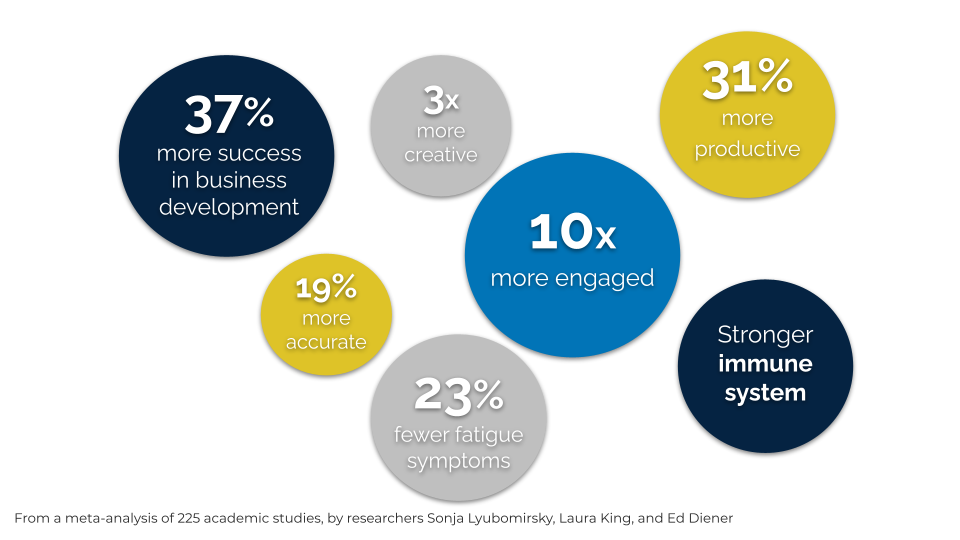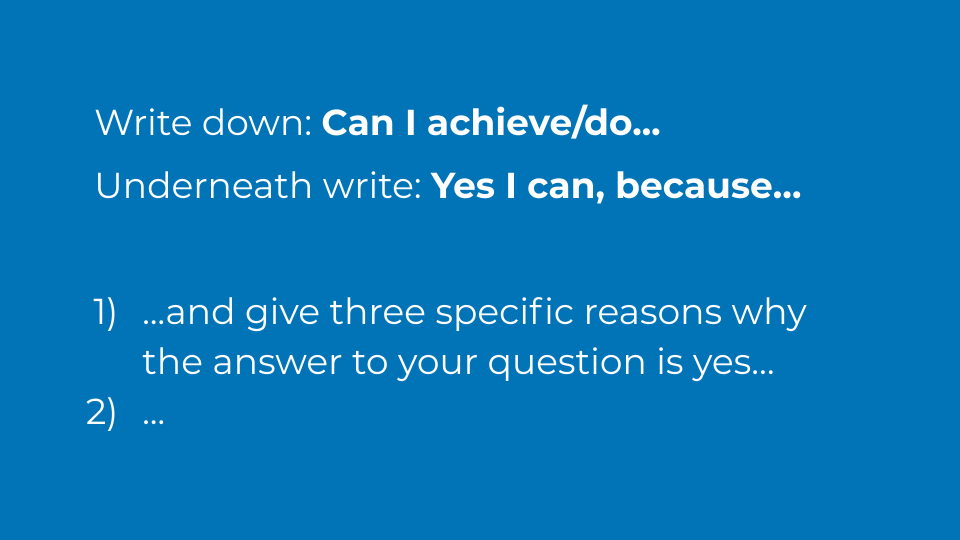13th August, 2024 •

Written by admin
16th February, 2021 • 4 min

What is self talk
Do you ever hear a voice in your head telling you that you left the oven on, or that you performed badly in a meeting or that you did really well to beat your running time? This is our self talk.
Our self talk has more impact on our lives than we sometimes realise. Our words create pictures, which create feelings which lead to beliefs about ourselves. Some of these beliefs can hold us back. What we have to remember is that our self-talk is just one point of view, based on our own biases, assumptions and memories.
For example, if you say to yourself “I am rubbish at meeting new people, and never remember anyone’s names” then how likely is it that you will get better at meeting new people and remembering names. If we think back to our growth mindset blog, this is a fixed view, remembering names is a skill like any other that we can learn.
Why should we change our self talk to be more positive?
Individuals with positive self talk show all of these benefits:

How can I identify my negative self talk?
There are four categories that are good to explore when thinking about your negative self talk.
How to overcome: ask yourself “realistically how likely is this to happen?”
How to overcome: ask yourself “am I jumping to conclusions? Is there any actual evidence to support my thoughts?”
How to overcome: we will be exploring the negativity bias more and how to overcome it in our next blog n
How to overcome: ask yourself “is there another way to look at this?”
So, how can we improve our self talk?
1. Be more aware of what you say to yourself
The first step is to be aware of your self talk, listen to what you say to yourself for 24 hours, start to note down some of the things. Look back at what you have said to yourself and see if you can recognise any catastrophising, personalising, polasiring or magnifying.
2. Restructure and reframe your self talk
Start to challenge, reframe and restructure your self talk. This is not about ignoring all your negative thoughts, it is about challenging them and shifting your perspective.
Change I can’t do that to I can’t do that YET
Negative self talk holds us back, if we say “I don’t know how to do that” the likelihood is we won’t try and won’t improve. Whereas if we add a tiny three letter word to the end of that sentence “I don’t know how to do that yet” we prime our brain to start problem solving and finding a way we can do that.
Reframe negative statements to be positive
3. Talk to yourself in the third person
We often say things to ourselves that we wouldn’t say to a friend. So by talking to yourself in the third person you are more likely to be kinder, as you would to a friend – with positivity and support. It also helps you to be more rational and stop the negative irrational spirals that can happen in our head.
One study found that individuals preparing for a public speech were less nervous and performed better when they used their own name. They were more likely to say “You can do this Hanna” as opposed to the group who didn’t change their self talk and were more likely to say “I can’t do this.”
Start using your name and give yourself a positive pep talk in your head!
Brené Brown and Mo Gawdat use this too.
4. Ask yourself questions
Making our self talk more positive will not happen by us standing up every morning and telling ourselves that we are amazing. Our brain doesn’t believe it, we often trigger another voice that debates it and we feel no different.
Instead we need to ask ourselves questions.
Senay & Dolores (2010) conducted a study to explore this. There were two groups, one group had to say “can I solve these puzzles?” and the other said “I can solve these puzzles” ahead of being given challenging puzzles to solve. The group that asked “can I?” solved 50% more!
Why do we think this could be?
Rather than just saying “I can do this” and hearing a little voice say no you can’t, ask yourself can I do this? And then answer it with reasons why you can. You are more likely to believe it, start the problem solving process and achieve it.
So when you are in a negative spiral, or you don’t think you can achieve something, use this structure to help you stay calm, problem solve and feel more in control:

If you would like any more insight or help around your own self talk please do get in touch we would love to hear from you and help.